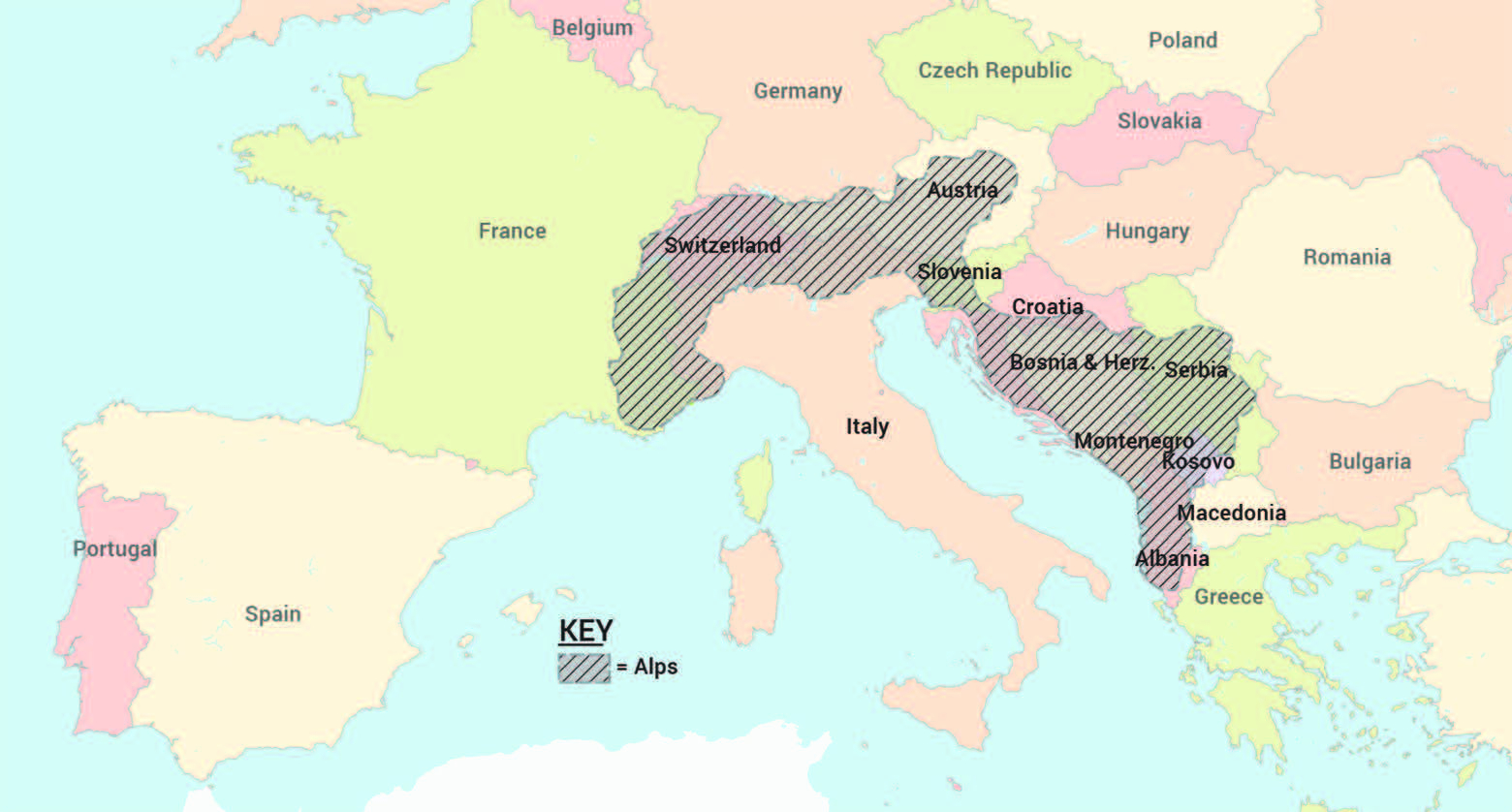
The Alps are a vast mountain range in Europe. They range across eight countries: France, Switzerland, Germany, Italy, Austria, Monaco, Liechtenstein, and Slovenia. Some countries have more Alps than others. Switzerland has the most. The Alps cover 65% of Switzerland.
Mountain climbing is a popular sport in Switzerland. The International Climbing and Mountaineering Federation (UIAA) measures the different types of mountains. In the Alps, there are 82 four thousanders, 48 of these are in Switzerland. A fourthousander is a mountain that is 4,000 meters (13,123 feet) above sea level. By the way, only Americans use feet to describe height of stuff like mountains. The rest of the world uses meters and so will I for the rest of this article.
Let me tell you a bit about myself. I’m more of a beachy, sea-level type of girl. But when we were traveling in Europe, my friend Kim convinced me to climb a four-thousander in Switzerland with her.
Kim chose an “easy” mountain. It’s called the Breithorn. It’s on Switzerland’s southern border, near Italy. The Klein Matterhorn cable car takes climbers to the top of Klein Matterhorn (3880 meters), the mountain next to Breithorn. The ride in the cable car is truly breathtaking. You rise over pine trees and quaint wood cabins. The sky is bright blue. The snow is blinding white. I imagine this is what the setting of the story of Heidi looked like.
From the top of Klein Matterhorn we began to prepare for our climb up Breithorn. We paid to go with a guided tour. We rented crampons and ice picks to help us climb up the icy mountain. Crampons are kind of like cleats. You strap them to the bottom of your boots. Instead of rubber nubs, the cleats are metal spikes. These help you not slip on the ice and fall off the mountain. We also rented some cold weather gear. It was much colder than we’d expected.
While we were getting ready, I started to get a headache. I felt very light-headed, too, like I couldn’t catch my breath. The group leader explained that the higher the altitude, the less oxygen there is in the air. That means for each breath you take, your body is getting less oxygen than at sea level. When you first get to a high altitude, your body suffers from oxygen deprivation (in other words, it’s not getting enough) and you can start to feel ill. At 3,000 meters, the air starts to get pretty thin. We were now at more than 3,800 meters and the air was very thin and my body was feeling it.
But Kim was pretty pumped about the hike, so I swallowed my complaints and went along. The group leader told us to drink lots of water to help with the altitude. I guess not having enough oxygen can also dehydrate you. Well, I did my best. The round trip hike was supposed to last between three to four hours. Guess who didn’t make it past an hour and a half? Nope, not me. It was Kim. But I’m a good friend, so I stayed with her.
About 30 minutes into our ascent, I really started to feel sick. My whole body hurt, kind of like when you have the flu. At the 90-minute point, Kim sat down on a ledge and said she couldn’t go any farther. Luckily, Kim wasn’t the only one. A group of five or six of us was told to sit or lie down and relax. We lay in the ice looking up at the sky and wondering if this is where it all ends. The assistant guide let us rest for about an hour and then led us carefully down the mountain. I was so exhausted and sick by the time we reached Klein Matterhorn that I threw up (just another fun symptom of altitude sickness). I guess you could say that I left my mark in the Swiss Alps.
After rinsing my mouth with water, I was able to tell Kim, “Next time, we go to Hawaii. The Swiss Alps make me sick.”



 About BeeLine
About BeeLine